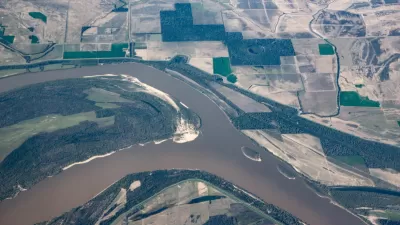Researchers estimate that roughly three-quarters of the oil spilled into the Gulf of Mexico is still dangerously concentrated in the water, a claim that disputes official word from the government that much of the oil has been safely dispersed.
"The federal National Incident Command, which has been coordinating clean-up efforts, reported earlier this month that the damaged well had spewed about 4.9 million barrels of oil into the Gulf before it was capped. Half of that oil had been safely burned off, skimmed, or directly recovered and another 25% had evaporated or dissolved, the federal researchers said.
Both the UGA assessment and the federal calculations it contradicts are estimates based on incomplete information. Federal researchers cautioned that their results would be refined as better information became available."
The researchers have found that up to 79% of the oil and related toxins are still in the waters of the Gulf.
FULL STORY: Much Oil Remains in Gulf, Researchers Estimate

Planetizen Federal Action Tracker
A weekly monitor of how Trump’s orders and actions are impacting planners and planning in America.

Restaurant Patios Were a Pandemic Win — Why Were They so Hard to Keep?
Social distancing requirements and changes in travel patterns prompted cities to pilot new uses for street and sidewalk space. Then it got complicated.

Map: Where Senate Republicans Want to Sell Your Public Lands
For public land advocates, the Senate Republicans’ proposal to sell millions of acres of public land in the West is “the biggest fight of their careers.”

Maui's Vacation Rental Debate Turns Ugly
Verbal attacks, misinformation campaigns and fistfights plague a high-stakes debate to convert thousands of vacation rentals into long-term housing.

San Francisco Suspends Traffic Calming Amidst Record Deaths
Citing “a challenging fiscal landscape,” the city will cease the program on the heels of 42 traffic deaths, including 24 pedestrians.

California Homeless Arrests, Citations Spike After Ruling
An investigation reveals that anti-homeless actions increased up to 500% after Grants Pass v. Johnson — even in cities claiming no policy change.
Urban Design for Planners 1: Software Tools
This six-course series explores essential urban design concepts using open source software and equips planners with the tools they need to participate fully in the urban design process.
Planning for Universal Design
Learn the tools for implementing Universal Design in planning regulations.
Heyer Gruel & Associates PA
JM Goldson LLC
Custer County Colorado
City of Camden Redevelopment Agency
City of Astoria
Transportation Research & Education Center (TREC) at Portland State University
Camden Redevelopment Agency
City of Claremont
Municipality of Princeton (NJ)



























